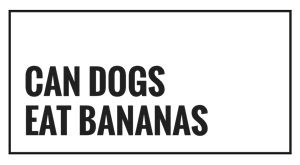I’ve already talked about the benefits of watermelon for your dog, but what about the other members of the melon family? Can dogs eat melon like cantaloupe or honeydew? Lucky for you, this mad blogger has the answer you’re looking for.
For the skim readers, the answer is yes. Your pup can enjoy the benefits of some juicy melon. However, I know you, yes you, are a serious dog owner. You love your fur baby to death, so you want to read the entire article. Just to make sure your fur baby really can safely eat melon.
Good on you, internet reader. Good on you.
Why Can Dogs Eat Melon?
While your dog eats some melon, take glory in knowing that they’re enjoying some delicious, nutritious benefits.
First of all, melons contain a lot of water. So by eating cantaloupe, watermelon, or honeydew, your dog is actually hydrating their self without drinking water. Pretty incredible, eh?
Also, melons provide your pup with the ultimate source of vitamin C. I’ve said it before and I’ll say it again, the immune boosting properties of vitamin C are essential to your dog’s diet. And lucky for them, melon offers tons of vitamin C.
Melons, like honeydew, also give your pup a healthy dose of vitamin B6. This vitamin aids your dog’s energy metabolism, which helps them turn carbohydrates into energy resources.
If your furry friend seems a little more groggy lately, consider giving them the occasional melon treat (if you have some in the fridge). The melon can help give your pup some extra energy.
Now, that’s a lot of good melon does for your fur baby. However, let’s get into some of the things you want to avoid with feeding your dog melon.
Take Care
I know your pup’s been hurt by some other fruits. I can tell by the way, they carried themselves (after they ate the fruit). But if you let me, here’s what I’ll do: I’ll take care of you and your pup.
How? By telling you what to avoid with melon. First things first, portion sizes. Make sure to chop that melon into bite size pieces to avoid any choking hazards and also to make the melon easy to digest.
Second of all, melons do contain fairly high amounts of sugar. So, any owners of diabetic dogs should avoid feeding them the fruit, and most fruits, in general.
Also, the high water content in melons potentially leads to loose stools for your pup, which often means this: diarrhea. Luckily, this is easy to avoid. Simply use moderation and only give your furry friend a couple of melon bites. Never give them a whole melon, please!
One last thing, not all dog digestive systems are created equal! While one pup will be able to feast on melon with no worries, another might get an upset tummy after just a few bites. Here’s what to do: observe your dog after feeding them some melon for the first time. If they’re fine after a few hours, then they’re in store for a new, juicy treat!
However, if they get an upset tummy or vomit a few hours after eating (or immediately after eating), avoid any future melon treats. Don’t worry, there are plenty of other delicious, nutritious treats that offer the same nutritional benefits as melon!
Recap
So, can dogs eat melon? They sure can. Just remember to use moderation with melon, and any other human food, when giving it to your pup.
Alright then, happy trails!













